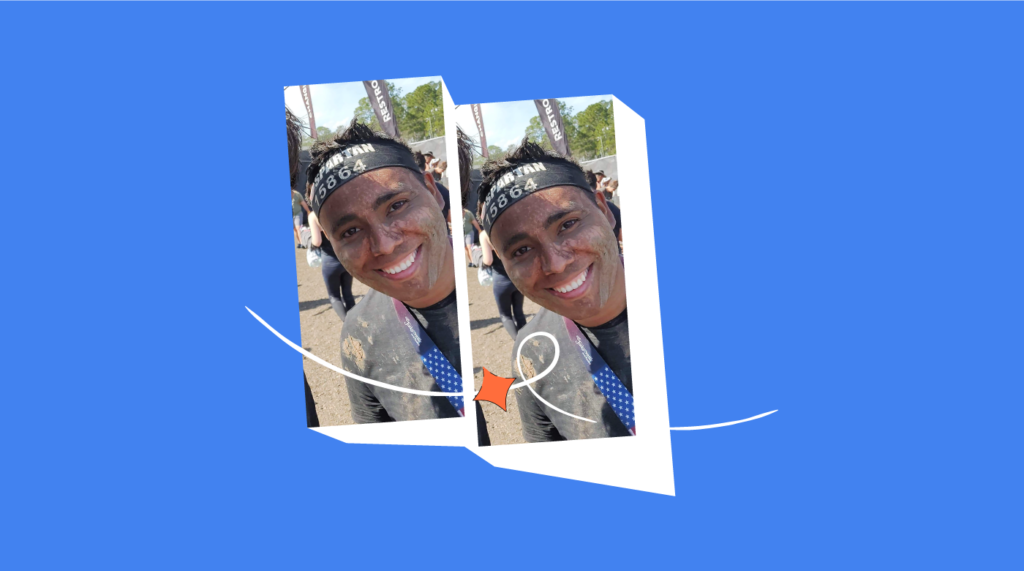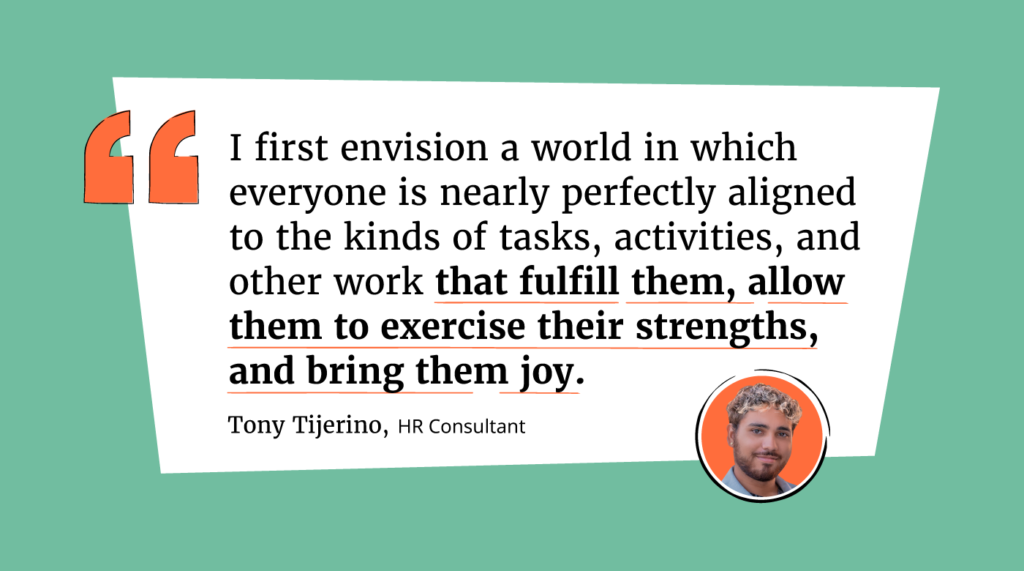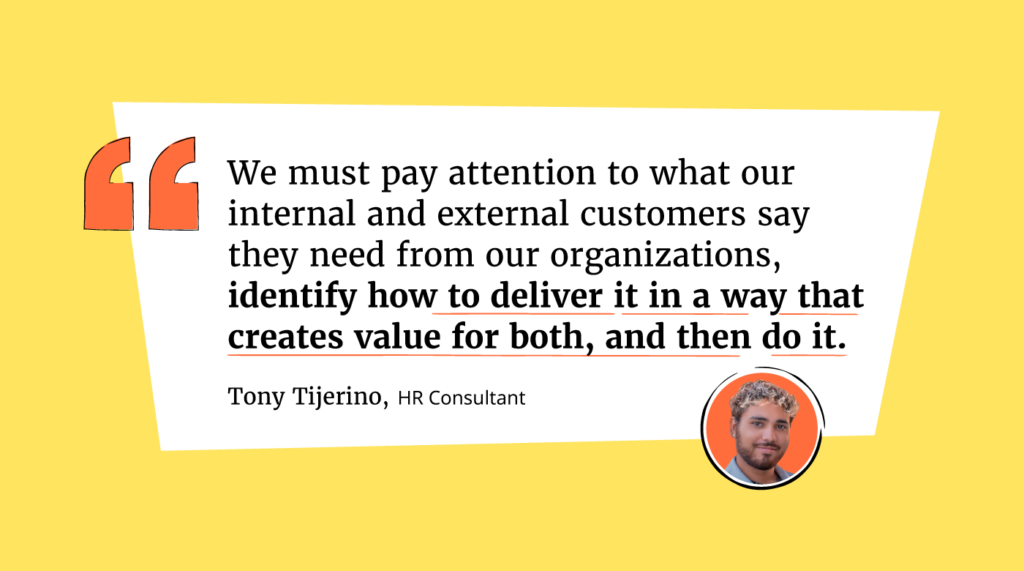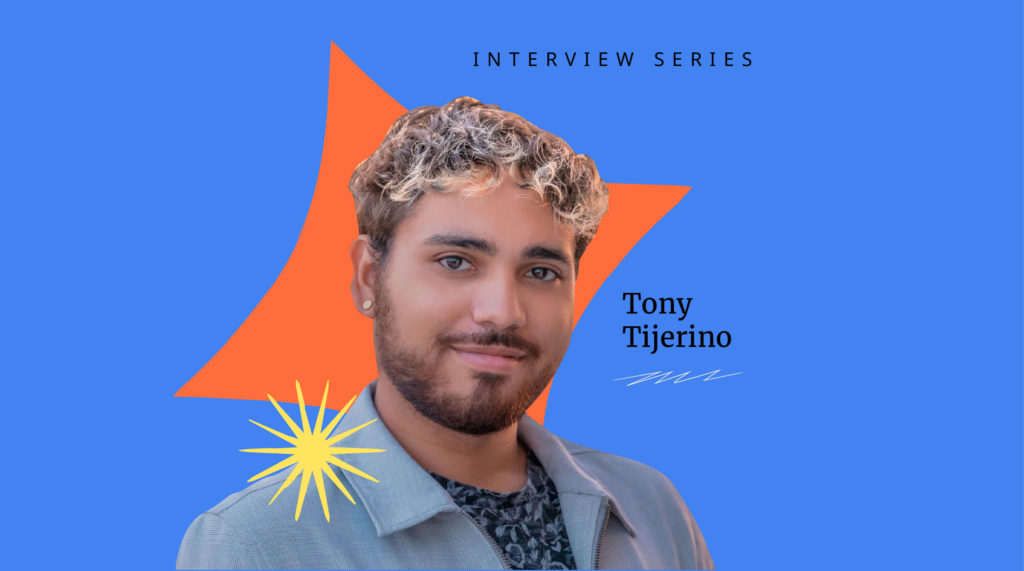We’re passionate about the world of work, and how we can make it better. To help satisfy our curiosity, we’ve launched an interview series where we pick the brains of experienced leaders, business owners, managers, and individual contributors to get their thoughts on how we can collectively build better.
We’d love to get to know you a bit better, tell us a bit about your backstory.
My name is Tony Tijerino, and I am an HR professional, writer, and community activist focused on enabling others to flourish and bring their best to the world.
I primarily do this by helping others gain clarity on their strengths, and by helping them identify the relationships, activities, and personal goals they find most meaningful. This underpins my work and interest in HR and my efforts to serve the many communities of which I am a part.
I started my HR career as an HR Manager for Target shortly after graduating with a BA in Philosophy, and after three and a half years, I stepped into a Service & Engagement role within another location in which I supported their HR function. Recognizing my desire to continue growing within the field of HR, I left Target to become a corporate HR Business Partner in the cruise line retail industry just before the COVID-19 pandemic.
When I lost that job, I spent time reflecting on my next steps and became involved in several volunteer efforts. This is when I became involved with the ACLU of Florida’s Immigrants’ Justice Campaign where I continue to volunteer as an Activist Leader overseeing training development and facilitation for that campaign.
As a life-long learner, I decided to go back to school and pursued an MS in HR Management at FIU in Miami and shortly after started a new role with IKEA as a Unit People Planning Specialist. As I neared graduation, I decided to leave that role to focus on school and address a number of personal issues.
Since graduation, I became involved with People Managing People thus far by contributing my writing to the growing pool of information and resources one can find on the site.
Currently, I do freelance HR Consulting in addition to my contributions to PMP, the ACLU of Florida, and the side-projects I am currently working on.
If we were to ask a friend to describe your personality to us, what would they say?
My friends would confidently describe me (in no particular order) as scholarly, stubborn, supportive, and entirely too hard on myself. I know this because they regularly tell me and keep me accountable for the areas in which I’m striving to improve.
Thinking back to your career journey, what’s an interesting story that stands out?
I know that many (if not most) of us struggle or have struggled with impostor syndrome at some point in our lives, but the role in which I struggled with this the most was in my corporate HR Business Partner role.
I remember one day where this must have read very clearly on my face because my manager at the time noticed and pulled me into her office to chat. What stood out to me from that conversation was the amount of attention she paid to what I had to say and my concerns about not fitting in with the team who had been working together longer. Most of them had also been in the field longer, so I felt that I neither had the confidence nor the credentials to meaningfully contribute.
Once I finished explaining, she smiled and laid out a number of differently colored cards with different words on them on the desk. She asked me to pick up the cards that I most resonated with and show them to her when I was done. While I can’t remember what color they were or what words were on the cards I chose, there was a clear theme. That’s when she put my stack of cards in one pile and said my name. She then put a stack of cards near mine that were large of a different color and said one of my colleague’s names, and did the same thing for my two other colleagues, saying their names as she finished each pile. The four of us each represented one of the four colors which in turn represented a distinct work style.
That’s when my manager looked up at me and said something to the effect of, “See? You bring balance to this team. Without you, we would be missing this crucial perspective to the team which could open the door for a less than ideal decision from our department. You belong here, and I’m confident that you are the right person for this role and for this team”.
Looking back, that is one of the most powerful lessons I’ve ever learned related to team building and the value of inclusive leadership over diverse perspectives.
What’s the most impactful lesson you've learned over your career thus far?
The most important lesson I’ve learned over my career thus far involves the importance of identifying and pursuing one’s personal sources of meaning and satisfaction. To live a fulfilling life, I’ve come to find that it is important to understand the various areas in our lives from which we derive a sense of purpose and do our best to align our daily activities accordingly.

This includes doing work we find purposeful but extends to our pursuit of personally fulfilling relationships, hobbies, personal development efforts, and so on. Crafting purpose in all of these areas in turn would enable us to flourish and live balanced lives. I believe this is essential to bolstering our collective ability to build a better world of work.
Thanks for giving us some insight into who you are! Let’s jump into things. When you hear the phrase “build a better world of work”, what comes to mind?
When I think about the phrase “build a better world of work”, I first envision a world in which everyone is nearly perfectly aligned to the kinds of tasks, activities, and other work that fulfill them, allow them to exercise their strengths, and bring them joy.

I also think about the journey organizations, leaders, and workers will have to take to get there. I believe that this vision of a better world of work is possible but will take courage, the willingness of leaders and workers alike to embrace change, and for leaders and HR professionals on this journey already to model the way so that this becomes a reality for everyone.
For you, what’s the main blocker you see as standing in the way of building a better world of work?
The main obstacles we face are, in my perspective, a collective instinct to shy away from change, an aversion to ambiguity, and the false sense of safety that makes it difficult to challenge the status quo.
What’s one thing within our control that we can practically do to build a better world of work today? And, how do you recommend going about it?
I believe that one thing within our control that would help us build a better world of work involves more quickly understanding the changing needs and demands of both our external customers and our internal customers (namely, the people who work for and with us) and then leaning into the appropriate actions we must take to navigate these changing demands.
There are observable trends we see indicating the evolution of work as we know it, many of which have emerged out of the ambiguous and paradoxical nature of dealing with the COVID-19 pandemic over the past two years. We see that we are moving from hierarchical work structures to flatter ones where teams can more quickly collaborate and respond to the needs of their customers without seeking approval from above. This supports their customers by addressing their needs more quickly but also supports workers by offering them more autonomy in their work.
We also see trends relating to how, when, and where work is completed. We are moving from the traditional fixed 9 to 5 schedule in the home office under the supervision of our managers to flexible work, which includes flexible working hours and the growing availability of folks to work from anywhere. And there are many more trends indicating that the way we do work will continue to evolve.
I think the way we pragmatically adapt accordingly is the first step while we continuously seek to understand what our workers need from us to perform their best work that balances their needs and the needs of our businesses.
Ways we do this in turn include embracing new technologies and forms of communication facilitated by these technologies to keep a pulse on these changing needs.
We must pay attention to what our internal and external customers say they need from our organizations, identify how to deliver it in a way that creates value for both, and then do it. I believe this is the starting point for many organizations that are in various stages of navigating this evolving nature of work.

Can you share one thing you’ve experienced, seen, or read about that is leading us towards a better world of work?
I am increasingly seeing research and writing relating to how organizations should reinvent themselves in the midst of constant change and ambiguity. Two books on these topics include Reinventing the Organization by Arthur Yeung and Dave Ulrich and Work Without Jobs by Ravin Jesuthasan and John W. Boudreau. The former offers a six-step framework that includes the decisions that leaders need to make to deliver radically greater value in quickly-evolving markets. It serves as a roadmap for reinvention away from traditional work structures to new ways (e.g., away from the traditional hierarchical structures of the past) that focus on the market.
In Work Without Jobs, the authors propose a radical way of thinking about looking at work that deconstructs “jobs” as we know them and reconfigures them into tasks and activities that better reflect the strengths and capabilities of individual workers.
These two books, I believe, serve as wonderful resources for leaders and organizations who are ready to help pave the way to a better world of work by reimagining what “jobs” and “work” could look like. They are well worth the read.
I’m curious, thinking about building a better world of work, is there a company and/or leader who stands out to you as someone we should follow? If so, what are they up to?
There are a number of organizations, think tanks, and leaders I personally follow to stay updated on the latest research, but a key figure I would point to is Dave Ulrich, a professor, consultant, and thought leader who has shaped the HR profession over the past couple decades with his ongoing research on how people and organizations deliver value to customers, investors, and communities. He is very active on LinkedIn and publishes articles regularly there while engaging with other HR thought leaders on their work and research. He has also published over 30 books on topics on leadership, organization, and of course Human Resources.
How can our readers follow your work?
Folks can follow my work with People Managing People and on LinkedIn, where I intend to start sharing additional content and insights in the coming weeks. When other projects I have in the works go live, I’ll share them on LinkedIn!
Thank you for adding your voice to the People Managing People’s interview series on How to Build a Better World of Work!
Add Your Voice To The Conversation
Join our interview series and share your ideas for how we can build a better world of work!
Related Reads:
- Measuring Chaos Tolerance Will Help Us Build A Better World Of Work
- Reassessing Productivity To Build A Better World Of Work
- Miscommunication Is Holding Us Back From Building A Better World Of Work
- Defining Our Weaknesses Can Help Us Build A Better World Of Work
- Building A Better World Of Work Starts With Self Awareness
- Flexibility Will Help Build A Better World Of Work

